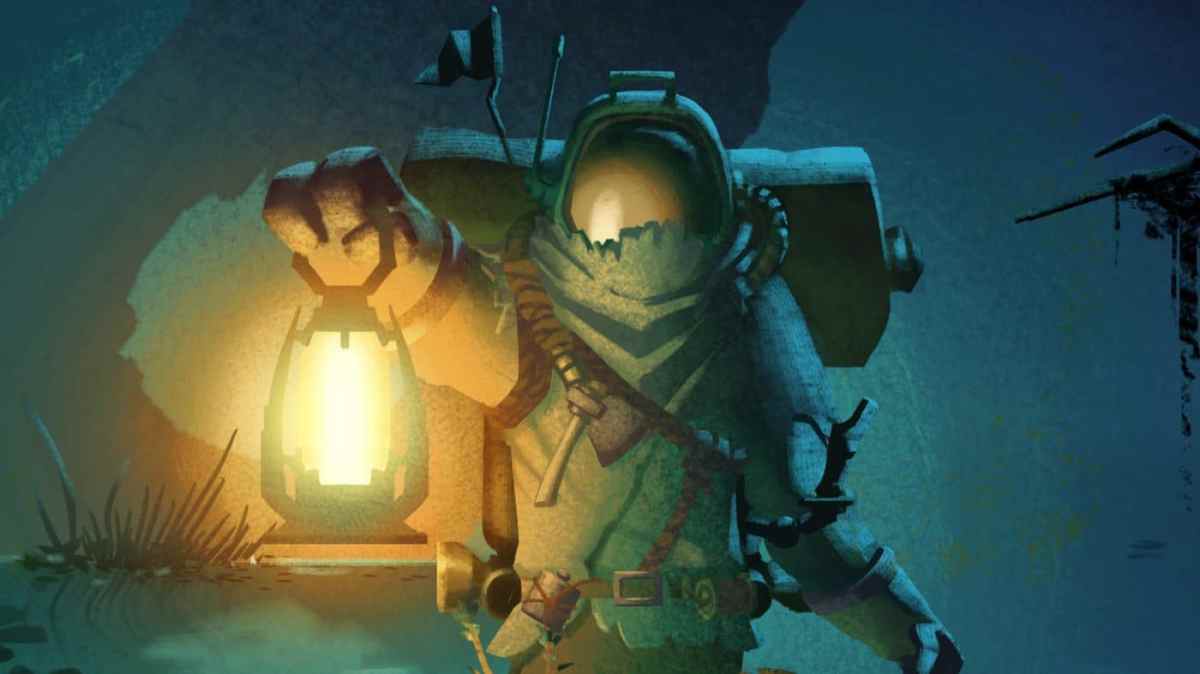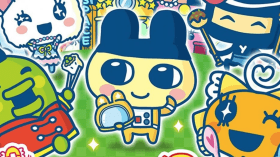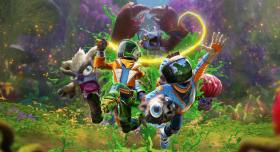2021, what a wild year. A tumultuous time for just about everyone, of course. I genuinely started this year having no idea where I would be by the end of it, and it turned out to be a whirlwind of ups and downs in work, life, and games… probably.
I didn’t think GamesHub would be a thing, for one. I took up a managing editor role at ScreenHub in March with an eye to introducing more games coverage to the site (on top of the great work Jini Maxwell was already doing) and now we have a whole dedicated site to spend all of our time exploring the vast, equally inspiring and ridiculous world of video games. What a gift.
To be honest, at the beginning of the year I was pretty sure I would be thinking a lot less about video games in 2021. And while I’m very grateful that’s not the case, I feel like this has definitely been a year where my relationship to them has changed pretty significantly.
I’m pretty sure this is the year where I’ve crossed the line of spending way more of my time thinking about games rather than actually playing them, and I’ve become a lot pickier with what I choose to pick up and play when I get the chance. As a result, it’s definitely been a year of mostly short-burst games and briefer experiences where at all possible. Turns out, managing a publication is pretty time-consuming.
A quick reflection on GamesHub
At the time of writing, just as 2021 is about to end, GamesHub has only been around for three months – but it feels like three years, of course. Looking back, I’m actually kinda shocked how much has happened in that very short amount of time.
We kicked things off with Wordplay, the games writing mentorship we continue to bang on about. The program was fortunate enough to be blessed with amazing mentors and a great partner in Melbourne International Games Week – all of who agreed that local games media could really do with some talented new voices. In retrospect, it was all so fantastically aligned with what we want GamesHub to be from the get-go – a place that views games as both a creative industry and popular entertainment (like Games Week), and one that fosters new perspectives.
Huge kudos has to go to Jini Maxwell and Dan Golding for helping shape Wordplay, as well as mentors Rae Johnson, Brendan Keogh and Alice Clarke. And it would be nothing without the amazing work of the inaugural cohort, whose work (and picks for game of the year) should be on your reading list.
Following Wordplay, the very cool Leah Williams joined GamesHub. After working next to Eddie Makuch at GameSpot for so many years, I never thought I would meet such an incredible editorial force again, but Leah is absolutely on that level, and the site would not be as strong as it is without her.
And throughout this entire time, I’ve been very thankful for the amazing work of our freelance contributors, who have helped keep our standard so damn high through their features and reviews, from ScreenHub through to GamesHub.
GamesHub has already been brought onto Metacritic, which I feel is a great nod to our quality of reviews and games criticism. And I’ve loved each and every one of our investigative and behind-the-scenes features. Big shoutouts to Chris Button, Nick Kennedy, David Wildgoose, Hope Corrigan, Christie McQualter, Stephanie Harkin, and the dozens more who have written for us so far.
If you’ve been following and reading GamesHub since October 2021, thank you so much. If this is the first article you’ve seen on GamesHub, welcome. I hope everyone reading this will continue to stick around, and that 2022 is a great one for all of us.
Anyway, here’s a list of good games that defined my 2021:
Hitman 3
I didn’t have a full-time job when Hitman 3 came out in January (‘Hitman 3 was this year?!’ seems to be a common sentiment). You’d think that not having a strict 9-5 would give you a ton of time to catch up on things you want to do, like play a shitload of video games, but in reality, I just spent most of my time worrying deeply about my responsibilities as a mid-30’s adult.
Hitman 3 was the one game I allowed myself to play during this period, but only in relatively short sessions. But it was great because this meant I allowed myself to really savour it in a way I couldn’t do with the previous games — I crunched on Hitman 2 for a review deadline and burnt out quickly.
With Hitman 3 I was able to take everything slowly. I replayed all the levels, I appreciated every single inch of environmental design. I played Hitman the way it was meant to be played. And what an incredible bunch of locations Hitman 3 had to do that all in — Dartmoor, Berlin, Chongqing, Mendoza. Absolutely top-tier stuff.
I remember the furor when developer IO revealed their rebooted, episodic, mini-sandbox level structure of the series in 2016. I thought the backlash was ridiculous then (I had loved replaying Metal Gear Solid V: Ground Zeroes over and over), and it’s even more ridiculous in retrospect now, given how successful it’s been. The clockwork stages of Hitman are just so good, and they just keep getting better. In fact, I want to go play some Hitman 3 right now.
Forza Horizon 5 and Guilty Gear: Strive
I’ve always thought of myself as someone who always wants to be playing something new, discovering what kind of innovative, genre-busting things are being done in video games. In the past, if I had free time I absolutely wanted to spend it broadening my horizons and challenging myself.
As life became much more demanding this year, I found myself finding great peace in doing what most people who enjoy video games probably do – slink into something incredibly familiar, incredibly comfortable, and just enjoy the heck out of some raw, escapist thrills.
Forza Horizon 5 and Guilty Gear: Strive became those outlets for me. Polished, beautiful-looking, sequel-ass sequels of proven quantities. I will always enjoy hooning around in a Subaru in Forza Horizon, and Horizon 5 made no missteps while providing a great map. That series will probably always be inherently satisfying. I love fighting games, and playing endless rounds of online multiplayer in the flashy Guilty Gear: Strive, a very good (and good-looking) one of those, continued to make me feel alive when that’s all I needed.
Unpacking, Inscryption, and Deathloop
The big gems of the year. When you review a lot of video games, many of them tend to fade from your mind once you finish bursting through them and need to move on to the next thing. Unpacking, Inscryption, and Deathloop were three that have continued to stick with me since, which makes them remarkable in my eyes.
I’ve written plenty about the individual titles plenty in our reviews of these games and elsewhere in our Best of 2021 coverage, but I think the main thing that makes each of them so strong is the focused direction and effective execution of what each of them sets out to achieve. Great designs all around, with unique ideas that stick with you. They are all worthy of being called ‘Game of the Year’. Play them all!
Halo Infinite Multiplayer
If you had talked to me before I played Halo Infinite, I would have told you that I was over multiplayer first-person shooters. As it turns out, maybe I’m just over the brand of twitchy, lightning-quick, and custom loadout-focussed designs of the most popular ones in recent years?
Having never really been a Halo person in the past, I was shocked by how much I took to Halo Infinite‘s multiplayer mode. The moderate speed of the game, and the time to kill an opponent is absolutely perfect for the type of brain I have these days — I’m not dead the instant I hear gunshots behind me, there’s always a chance to turn things around!
I love the balanced weapon variety, as well as the fact that everyone starts on equal footing with the same equipment. It feels like a revelation in these modern times, even though it’s a back-to-basics solution. It makes me feel that every victory is because I Did Good, rather than My Gun Had Better Attachments.
To see people complain about the meta-progression and battle pass stuff when it released was wild to me. Halo Infinite‘s multiplayer is so well designed – playing it is its own reward. I continue to play it almost every day. I still can’t believe I’m a Halo guy now.
Pokemon Unite and Disney Melee Mania
God, I have spent so much of my life in Dota 2. A few years ago, I had to quit the game cold turkey, since the 40+ minute multiplayer matches, where the enjoyment of nine other people relies on your unwavering commitment, had begun to seriously have a detrimental impact my life and relationships.
Weirdly enough, this year saw the release of two MOBAs (multiplayer online battle arenas) based on popular intellectual properties: Pokemon Unite on
But more importantly, both are designed to be snackable, as opposed to the banquets of Dota 2 and League of Legends (I’ve heard both games are a bit faster now, but I don’t want to risk going back down that rabbit hole). And more importantly, both are actually pretty good, surprisingly!
They successfully chop away all genre excesses to focus on the best bits: team fights and objective contesting. And they’re both especially great for me because I can squeeze them around my life, rather than the other way around. Pokemon Unite matches are 10 minutes, and Disney Melee Mania matches clock in at 5 minutes. I don’t even need to play them with the sound on, which is perfect — needing the best audio experience possible is a hang-up that stops me from playing so many Switch and mobile games.
Climbing the ranks of Pokemon Unite became a brief, daily ritual for me for a good long while. I’d force myself to do a Ring Fit Adventure session at night, and a couple of matches in Pokemon Unite became a nice little treat while I recuperated afterward. Since Disney Melee Mania came out on
As tempting as it is, I don’t think these games will get me back into Dota 2 properly, as much as I miss Valve’s exquisite touch on that game. But I am glad that some of the satisfaction that comes from successful teamwork in a MOBA play can at least be in my life again.
Outer Wilds: Echoes of the Eye
This hasn’t been a ranked list up to this point, but if it was, Echoes of the Eye, the expansion content for Outer WIlds, would be at the top of it. That’s right, a piece of DLC would’ve topped the list and there would’ve been no-one to stop me.
For me, Outer Wilds remains one of the best, most well-designed, and most magical and video games of all time. A non-linear exploration game where the bizarre mysteries of a solar system are left for you to completely uncover in your own way, and where nearly every new discovery is a completely arresting, wide-eyed, and often emotionally powerful moment, no matter how you personally managed to stumble across the answer.
I actually didn’t get around to playing Echoes of the Eye until much later in the year. Part of that was because I didn’t think my brain could take on much more mental stimulus without exploring, and another part of me thought, ‘just how good could a piece of DLC possibly be?’
The answer is: really fucking good. Echoes of the Eye does take a bit of brainwork to even get it started in the first place, but once that ball is rolling it is absolutely awe-inspiring. The feeling of veering into the complete unknown and making revelatory, shocking, and sometimes downright terrifying discoveries comes thick and fast in Echoes — that’s likely by virtue of everything taking place in a single location, rather than a whole solar system — and it’s a little more fulfilling in that regard.
But that’s by no means to the detriment of what Echoes of the Eye achieves in the end. I was left absolutely haunted by it. I’m still haunted by it. Outer Wilds and Echoes of the Eye are all-timers for me. This is the best video games can be, and a reminder of why I love them so much.
Thanks for another good year, video games!
For more of GamesHub’s Best of 2021 content, have a look at our picks for Best PlayStation Games of 2021, Best Xbox Games of 2021, Best PC Games of 2021, Best Nintendo Games of 2021, Best Mobile Games of 2021, Best Australian Games of 2021, our overall Best Games of 2021, and our Game of the Year for 2021.
Our spotlight on personal highlights includes Ring of Pain’s Simon Boxer, Unpacking’s Wren Brier, ACMI curator Jini Maxwell, games researcher Brendan Keogh, the 2021 Wordplay mentorship participants, producer and consultant Meredith Hall, GamesHub content lead Leah Williams, critic David Wildgoose, contributor Chris Button, and Nicholas Kennedy, host/content creator Jess McDonell, SUPERJUMP Editor-In-Chief James Burns, and GamesHub Managing Editor Edmond Tran.





